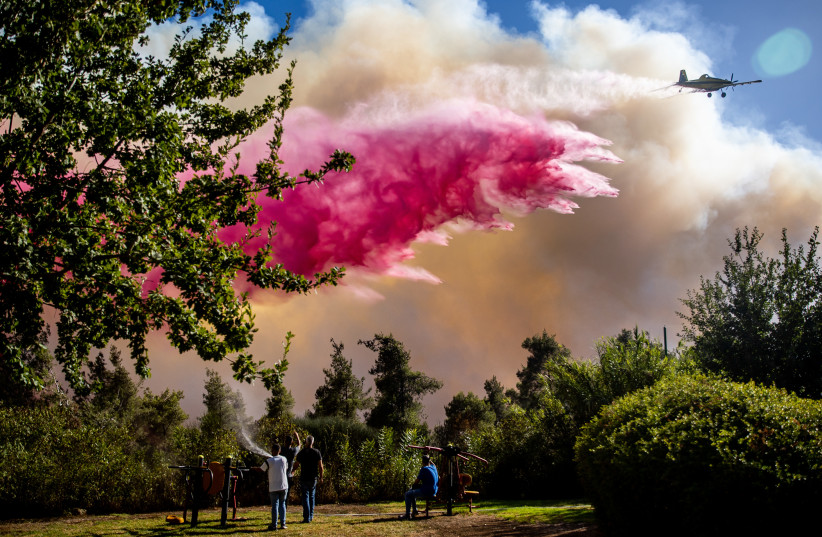Israel will be better prepared for the next natural fire that hits it, thanks to a plan passed by the government on Sunday.
Over the summer, when a wave of heat fires spread throughout the region, areas in and around Jerusalem were aflame for a total of 52 hours - three days - before fire and rescue teams managed to regain control of it. Over 6,000 acres of land were charred by the fire. Jerusalem District Fire Commander Nissim Twitto said at the time: "It will take decades to restore all that was lost."
The bulk of the plan includes the creation of buffer zones and stronger communication with the IAF firefighting teams. A new staff team will be created to man the buffer zones for towns and cities near forested areas to prevent spreading. The buffer zone will be created like a ring around the towns, in which there will be minimal vegetation as well as wide roads allowing for emergency vehicle access.
The plan, totaling 155 million shekels, was put forth by Prime Minister Naftali Bennett, Public Security Minister Omer Bar Lev and Environmental Protection Minister Tamar Zandberg. It will be financed by the Finance, Interior, Environmental Protection, Public Security, Agriculture ministries and the Israel Land Authority.
"The world is heating up due to climate change," said Prime Minister Naftali Bennett, "fires present a real-life danger to everyone.
"We are not waiting for the next disaster to strike," he said, "rather we are preempting the attack... We are chock-full of experience from the last couple of years and are adopting those lessons for the future to be best prepared to protect Israel's citizens."
In addition, a management staff team will be created from IAF and Israel Police's aerial extinguishing unit, with the goal of facilitating greater coordination between the two groups.

"[This plan] is an important step in Israel's abilities to be best prepared and is also better suited to the current status of climate change. Our region is dry and hot, and the climate emergency is expected to worsen and intensify fires in the upcoming years. This plan is laying the groundwork for better preparedness and an ability to protect the landscape," said Zandberg.
"The climate emergency is placing before the Public Security Minister, specifically the Fire and Rescue Services, extremely difficult challenges. We are dealing with more massive fires than we've dealt with in the past. This plan is a huge contribution to our readiness for what's ahead," said Bar Lev.
The Environment and Climate Change portal is produced in cooperation with the Goldman Sonnenfeldt School of Sustainability and Climate Change at Ben-Gurion University of the Negev. The Jerusalem Post maintains all editorial decisions related to the content.
